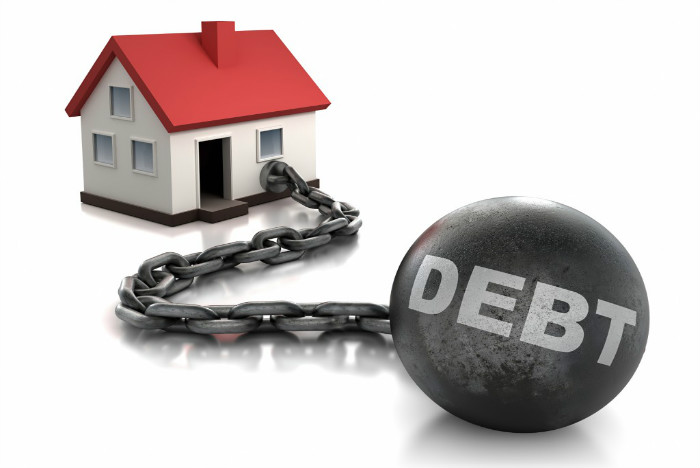(单词翻译:单击)
China's household debt reached a record high last year, adding to worries the burden of debt services could weigh on long-term consumer spending and drag on growth in the world's second-largest economy.
中国的家庭债务在去年达到了历史最高水平,令人愈发担忧偿债负担可能会抑制长期消费支出,拖累全球第二大经济体的增长。
The country's ratio of household debt to gross domestic product hit an all-time high of 49.1 per cent in 2017, marking an increase of nearly 20 per percentage points over the past five years, German insurer Allianz said in its latest global wealth report.
德国保险公司安联在其最新的全球财富报告中表示,中国的家庭债务与国内生产总值(GDP)之比在2017年达到49.1%的历史新高,在过去五年里增加近20个百分点。
"This amounts to an increase of 30 percentage points in just 10 years -- no other country saw its private debt burden rising so fast," Allianz said, with the caveat that "China needed to catch up to some extent, as Chinese private households only obtained access to bank loans in 2003".
安联公司表示:“这相当于在短短10年里增加30个百分点--没有其他国家的私人债务负担增长如此之快。在一定程度上,中国需要追赶,因为中国的私人家庭只是在2003年才获得申请银行贷款的渠道。”
The report comes amid concern over the extraordinary increase in Chinese debt since the 2008 global financial crisis.
该报告出炉之际,正值人们对2008年全球金融危机以来中国债务异常增长感到担忧。
In China, corporations and local governments were the main drivers of the country's debt accumulation through to 2016, thanks to stimulus policies that promoted investment in factory capacity and public infrastructure.
截至2016年,企业和地方政府一直是中国债务积累的主要驱动力,因为刺激政策促进了对工业产能和公共基础设施的投资。
But steep increases in house prices have led to an increase in mortgage debt, while the rapid rise of online consumer lending — which barely existed four years ago -- have combined to cause a sharp rise in household debt in the past two years. Regulators have recently cracked down on risky online lending, causing the flow of loans to slow.
但房价飙涨已导致抵押贷款债务增加,再加上在线消费贷款(四年前几乎不存在)快速增长,已在过去两年期间导致家庭债务急剧上升。监管机构最近打击了风险较高的在线贷款,致使贷款流量减缓。

Chinese household consumption as a share of GDP remains low by international standards at 39.1 per cent. In the US and EU, the same ratio is 68.4 per cent and 55.6 per cent, respectively. But consumption has been the biggest driver of China's GDP growth for four straight years.
按国际标准衡量,中国家庭消费占GDP的比重仍然较低,为39.1%。在美国和欧盟,这一比重分别为68.4%和55.6%。但消费已连续四年成为中国GDP增长的最大推动力。
Rising debt and slower growth of household income are sparking concern about the impact on consumption and growth.
债务不断上升,而家庭收入增长放缓,令人担忧消费和经济增长将受到什么影响。
"Consumption decline is the main risk to the economy this year," Jianguang Shen, China economist at consumer finance group JD Finance, wrote in a report.
消费金融集团京东金融的中国经济学家沈建光在一份报告中写道:“消费下滑是中国经济今年面临的主要风险。”
He added that, due to rising wealth inequality, the consumption patterns of different groups have diverged.
他补充说,随着财富不平等加剧,不同群体的消费模式已出现分化。
"Rising housing prices have a positive influence on those who already have their own houses. It shows that they have been spending more on luxury goods, advanced education, advanced medical care and services, and overseas tourism," wrote Mr Shen.
沈建光写道:“房价上涨对那些已拥有自己房屋的人产生了积极的影响。这体现为他们在奢侈品、高等教育、高端医疗和服务以及海外旅游方面的支出更多。”
"But for tenants and those planning to buy a house, rising housing prices will reduce residents' disposable income. They will downgrade their consumption in the short run and pay more attention to cost."
“但对于那些租房和打算买房的人来说,房价上涨会降低他们的可支配收入。他们在短期内会降低消费,也更加注意成本。”


